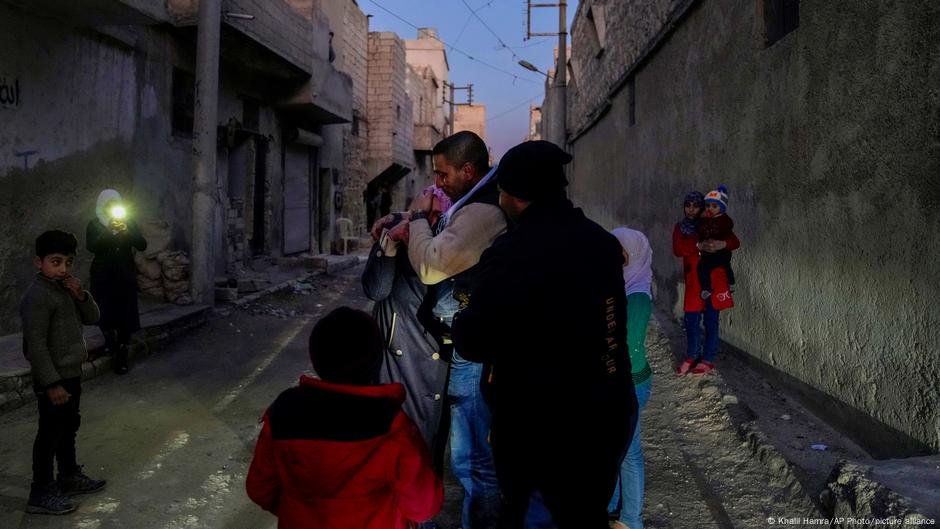After the ouster of Syria's former ruler Bashar Assad six months ago, most EU nations suspended the processing of asylum applications for people coming from Syria. The Netherlands now has resumed assessing such cases. Germany meanwhile said it will not pass any binding rulings on Syrians for the time being.
The Immigration and Naturalization Service (IND) of the Netherlands announced that asylum decisions will now be made on almost 17,000 outstanding as well as new asylum applications lodged by Syrian nationals seeking asylum.
However, this comes after the government had downgraded the risk assessment level for Syria, saying that the danger of people facing persecution and arbitrary violence in Syria is now at the lowest level according to EU assessment guidelines.
This means that more asylum applications are likely to be rejected in the future than have been before, the authority explained.
Meanwhile, an increased risk level is still valid for certain groups in Syria, such as members of the LGBTQ+ community and the Alawite minority, which has witnessed fighting and violence in the months since the fall of the Assad regime.
The decision to resume processing applications comes against a backdrop of anti-immigrant sentiment in the Netherlands, and follows a week after a government collapse prompted snap elections to be held on October 29.

Syria still plagued by violence
There are over 71,000 Syrian asylum seekers in the Netherlands, whose long-term fate remains uncertain.
While some have been in the country for long enough to qualify for permanent residency and even citizenship, many continue to fear that they might be sent back to Syria if it is decided that the country is safe to return to.
According to the latest Dutch risk assessment, uncertainty over Syria's future remains over issues like social fragmentation and slow progress in the country's political transition, citing among other factors the ongoing presence of armed groups across the country as well as instances of sectarian violence resulting in the ongoing displacement of tens of thousands of Syrians.
The document also highlights that "(m)any Syrians from the country's diverse ethnic and religious communities are critical of the fact that ministers from their communities do not have a formal political base," with multiple local authorities, especially in the northeast of the country, rejecting the transitional government in Damascus.
Read AlsoUNHCR: More than 500,000 Syrians have returned to their country since Assad fell
Asylum in the shadow of new elections
A further risk assessment scheduled for the beginning of 2026 will likely decide on the fates of those who are awaiting asylum decisions in the Netherlands.
However, it is uncertain to what extent the result of the upcoming elections in the Netherlands will have an impact on the next risk assessment amid an uptick in right-wing support across the country.
For the moment, Migration Minister David van Weel said that the situation in Syria remains too unstable and unpredictable for the government to decide on the future of this group of refugees in the Netherlands.
Read AlsoInternally displaced Syrians long to return home
After Assad: Syria's unclear future
Countries across Europe, including the Netherlands, had suspended decisions on asylum applications from people from Syria on account of the unclear situation in the country after Assad had been deposed.
Other nations such as Germany followed suit and stopped assessing Syrian asylum cases for the time being.
In the case of Germany, the Federal Office for Migration and Refugees (BAMF) resumed conducting assessments for Syrian asylum seekers in the beginning of May.
However, BAMF said it still will not issue any binding asylum decisions for Syrians.

Germany keen on deportations
Meanwhile, some decision-makers in Germany continue to believe that places like Syria are safe enough to send at least certain people back to.
Daniela Behrens, the interior minister of the federal state of Lower Saxony, said that criminals and individuals who pose a risk to society should be deported back to countries like Syria and Afghanistan swiftly, and that preparations for this were underway.
"Beyond all party politics, the federal states are united in their expectation that the Federal Foreign Office and the Federal Ministry of the Interior will now make further such flights possible very quickly," Behrens of the social democratic party (SPD) said.
The new German government did state in its coalition agreement that deportations to Afghanistan and Syria would be pursued in the coming months -- though initially limiting this to criminals and those posing a risk to society.

with dpa, KNA
